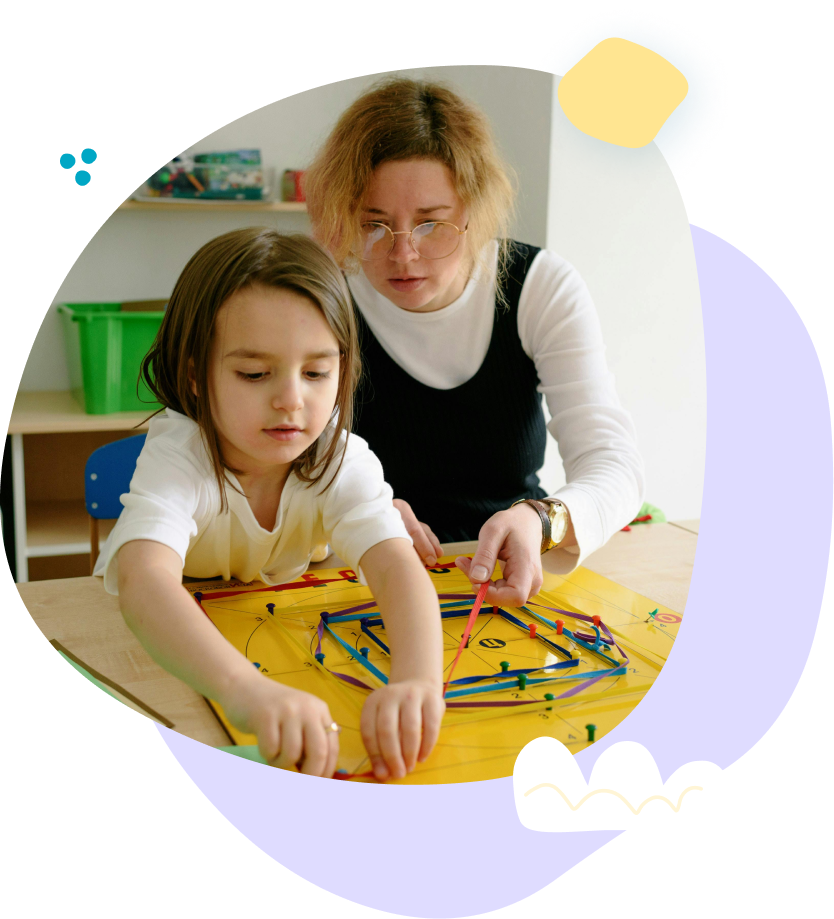Your Clinic
SET A LOCATION
Your Clinic
SET A LOCATION
Executive function skills are essential for daily life. These cognitive abilities help us plan, organize, focus, and regulate emotions. For children, developing executive function skills is critical to their success at school, home, and in social situations. However, many children face challenges in this area, making it difficult for them to meet their full potential. Occupational and speech therapy can play a pivotal role in addressing these challenges.
Executive function involves a set of mental processes that enable goal-oriented behavior. Key components include:
The ability to hold and manipulate information in the mind.
Switching between tasks or adjusting to new rules.
Self-regulating thoughts, emotions, and actions.
When children struggle with executive function, they may experience:
Difficulty organizing their thoughts or belongings.
Problems starting or completing tasks.
Emotional outbursts or an inability to manage frustration.
Trouble following multi-step instructions.
PPT4Kids offers specialized tools that target planning, organization, time management, and problem-solving skills. Our interventions help children develop the cognitive flexibility and self-management abilities essential for academic and life success.

Korro AI is an innovative platform revolutionizing occupational therapy with artificial intelligence. Designed to streamline therapy planning and enhance patient outcomes, Korro AI empowers therapists with data-driven insights, automated progress tracking, and personalized treatment recommendations. This cutting-edge technology helps optimize therapy sessions and provides objective measurements of progress.
Occupational therapy (OT) focuses on enhancing a child’s ability to perform daily activities, often incorporating fun and meaningful tasks to build skills. For children with executive function difficulties, OT can provide:
Activities that address sensory sensitivities or overstimulation, helping children maintain focus and emotional regulation.
Games that develop working memory, self-regulation, and problem-solving.
Setting up workspaces or routines that reduce distractions and encourage independence.


Speech-language pathologists (SLPs) support executive function by targeting cognitive and communication skills necessary for academic and social success. Their interventions might include:
Role-playing scenarios to improve flexibility and impulse control in social settings.
Using language-based exercises to develop critical thinking and reasoning skills.
Guiding children to reflect on their actions and adjust their approach in real time.
Occupational and speech therapy often work hand-in-hand to provide comprehensive support. For example:
An occupational therapist may help a child develop a schedule for completing homework, while the speech therapist ensures they can articulate questions and follow instructions during class.
Both professionals may collaborate on mindfulness exercises to build self-awareness and emotional control.

Children with executive function challenges face unique hurdles, but with the right support, they can thrive. Occupational and speech therapy offer targeted strategies to strengthen their cognitive, emotional, and communication skills, paving the way for greater independence and success.
Interested in learning more? Contact us today to explore how our therapy services can support your child’s unique needs. Together, we can help them build the skills they need to achieve their full potential.
We empower children, families, and the community to learn, grow, and celebrate every child's unique abilities.
Quick Links
Contact Details
Phone: 561-376-2573 | 561-918-0190
Fax: 561-218-4939
VIP Concierge: 561-717-1764
Clinic Locations
All Rights Reserved | Progressive Pediatric Therapy, Inc. | Privacy Policy | Terms of Service
Site by Spearlance